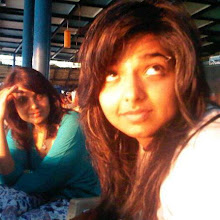Yes, my dearies, you heard right.
Tomorrowland supposedly plans on making a mark on the Indian Music
landscape sometime next year, and although Universal Music India (The
company rumoured to be helping Tomorrowland do so) has refrained from
making any sort of statements denying, or admitting, the same; their
vaguely-worded press release to the media seems just short of
confirmation.
Everyone is starry-eyed about
Tomorrowland in our own country, and why shouldn't they be?
In the decade since the first one,
Tomorrowland has grown into a mammoth, so-to-speak. It boasts a
line-up of the biggest Electronic artists in the world, it attracts a
global crowd, and the fantastical theme does, superlatively, its job
of transporting all attendees to a dimension far removed from
reality.
The announcement, since it hit social
media a few days ago, has caused a happy buzz among Indian EDM
artists and fans, not unlike the one from your first JD and coke.
However, the real question here seems
to be whether Tomorrowland can sustain that buzz, or will it just end
in headaches and hangovers?
Amidst all this excitement, at what was
probably the first festival of its sort that most EDM-philes
discovered, read, heard about, are some questions that nobody seems
to have raised so far.
Our country has had a long history with
big international names swooping in, and bulldozing the locals out of
the way of their super-sized commercial success, be it The British
with their eyes on everything, or Lays', who promptly killed local
vendors like Uncle Chips and Crax, for the first many years of their
reign.
Let's take a look at the current Indian
music scene. The last few years have seen a plethora of music
festivals pop up left, right and centre. Percept's Sunburn – The
pioneer in the Indian EDM Festival scene, Storm Festival in Coorg,
The Escape Festival of Art and Music in UP, Ziro Music Festival, NH7
Weekender, Ragasthan, Jodhpur RIFF, to name a few of the biggest.
A large number of these festivals were
started, and continue, to promote local musicians, whether folk,
Indie or electronic. Every single one of these festivals was built
from scratch, moving on to become 'must-attends' for all so inclined.
As anyone who has attended one or more
of these indigenous music festivals can tell you, each of them,
offers a unique experience.
While Sunburn caters purely to the EDM
fans, NH7 started primarily as a Rock festival and later diversified
to Indie and Electronic artists.
Jodhpur RIFF began as an effort to
promote local folk musicians, providing them with the perfect
platform for performance, creation and collaboration.
Ragasthan is a destination festival,
not unlike The Burning Man, held smack in the middle of the sand
dunes of Jaisalmer, with naught but music and art encompassing you
for those few days.
A big part of the charm of each of
these festivals, lies in their exclusivity, and the separate elements
they bring to the table which come together to paint a beautifully
rich and diverse picture of the Indian music scene.
These festivals have, over the last few
years, metamorphosed the Indian Independent music scene from a gentle
breeze to the storm that is now sweeping the country, taking into its fold an entire generation.
This is where we ask what Tomorrowland
(and Universal Music, by bringing it here) eventually aim to
accomplish with their advent into the scene. Branding, of course, is
one of the biggest agendas.
They will, for the festival, bring in
the same artists that any of our festivals would; Artists who will
probably play the same songs we've all been listening to for the last
5 years, if not more.
We already do it when we dance all
night to Hardwell's mashup of REM's Losing my Religion, or the Trap
(or Glitch Hop, or House, or Big Room) mix for Satisfaction. We've
been doing it before Tomorrowland, and we will be doing it during,
and long after.
The biggest complication Indian EDM
Artists have been facing at local festivals over the years, has been
the fact that our own event organisers are reluctant to trust an
Indian as the headlining act, giving preference to an international,
DJ MAG-rated, foreign DJ.
Yes, foreign is important here, because
we, as a country, when given the choice between indigenous and
foreign products, tend to gravitate to the foreign being better. It
has been this way for decades, and although things are changing, the
issue is far from resolution.
Taking this fact into consideration,
one wonders how an International festival intends to treat the local
talent.
Will the festival embrace the local
scene and work with artists to give everyone the opportunities and
exposure they deserve;
Or, like most other international
conglomerates before them, come, conquer and leave with all the
spoils, in the process marginalizing indigenous artists even more?
Will Tomorrowland India be the musical
revolution our generation is looking for, or turn green with
hostility(and greed), and Hulk-smash its way to the top, flattening
everything to get there?
Hey, it's one less excuse to go to
Europe, and who wants that?
